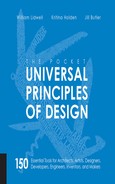132 Sunk Cost Effect
The tendency to continue investing in an endeavor because of past investments in that endeavor.
• People frequently let past investments influence future investments. For example, you buy a nonrefundable ticket to a show, decide you no longer want to go to the show, but you go anyway because you paid for it.
• Rationally speaking, past investments, or sunk costs, should not influence decision making. Only the cost-benefits of current options should influence decisions.
• People are susceptible to the effect because they fear losses more than they desire gains, and because they do not want to feel or appear wasteful. The effect leads people and organizations to make bad decisions, throwing good money after bad.
• Recognizing the sunk cost effect is the first step to recovery. Focus on current cost-benefits only. Beware the words, “We have too much invested to quit.”
See Also Cognitive Dissonance • Cost-Benefit • Framing

